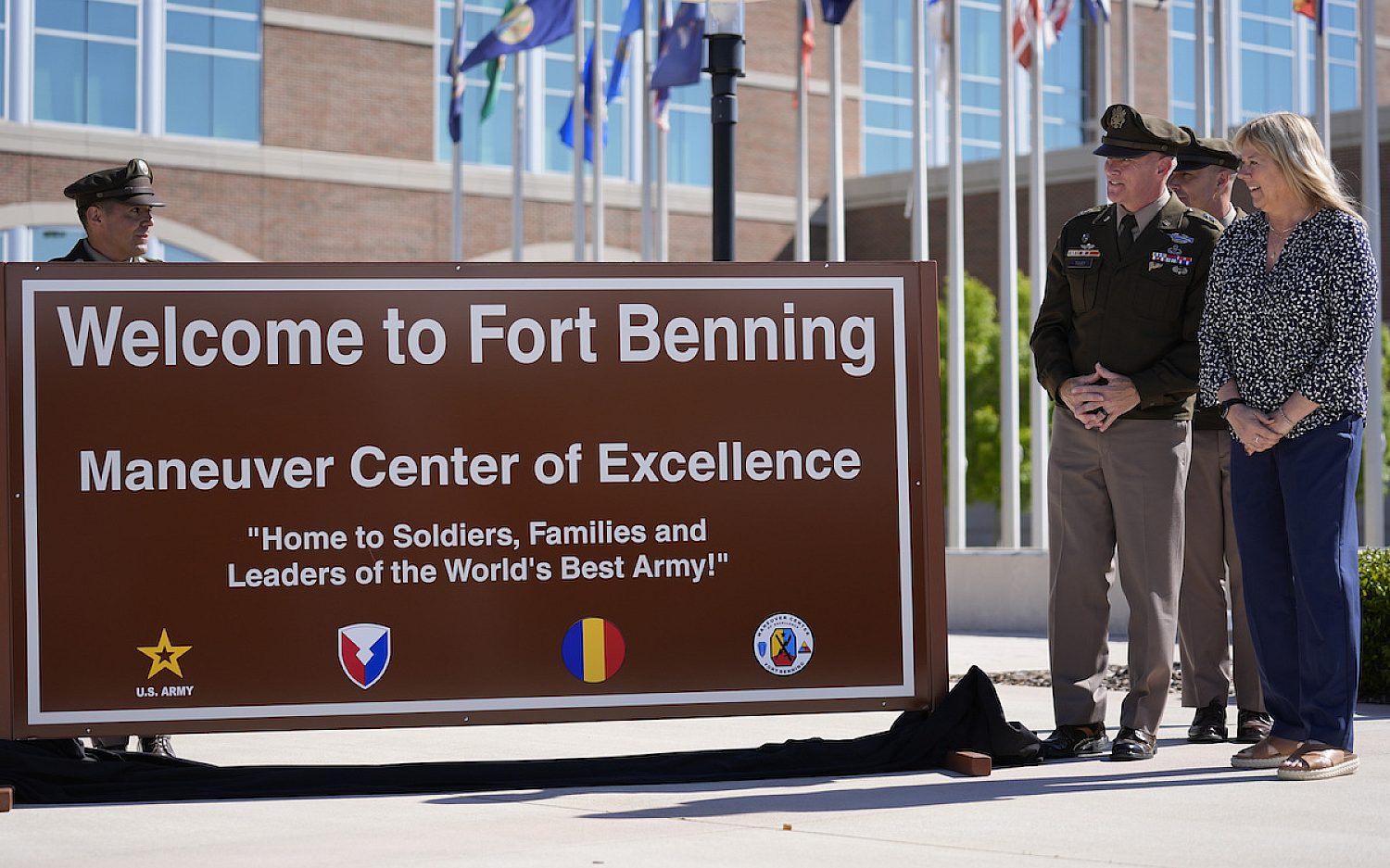A U.S. Army base in western Louisiana has a new name. The renaming is part of the U.S. military’s efforts to address historic racial injustice. The base now honors Sergeant William Henry Johnson, a black World War I hero.
“[Sergeant] William Henry Johnson embodied the warrior spirit, and we are deeply honored to bear his name,” tweeted Brigadier General David Garner.
While serving on the front lines of France in 1918, Johnson fought off a German night raid near the Argonne Forest, according to the National Museum of the United States Army.
Johnson was wounded 21 times while beating back the attacking forces. He also prevented a wounded comrade from being taken prisoner when, after running out of grenades and ammunition, he killed two German soldiers with his knife.
“His frantic attacks broke the German morale, and the enemy raiding party retreated,” the Army museum’s biography of Johnson says.
Johnson survived the war. Former President Theodore Roosevelt named him one of the five bravest Americans to serve in the conflict.
France awarded Johnson its Croix de Guerre (“war cross”) in 1918. He was the first U.S. soldier in World War I to receive that honor.
Sadly, the U.S. Army failed to recognize Johnson’s actions after the war. The Army did not award him a Purple Heart. Army records erroneously didn’t mention his wounds, and he was thus denied a disability allowance. Due to his injuries, he struggled after returning home to Albany, New York, and died of a heart condition in 1929. He was 32 years old.
After his death, Johnson’s brave actions were finally recognized. He was buried at Arlington National Cemetery with full honors. President Bill Clinton posthumously awarded him the Purple Heart in 1996. Johnson was also awardedthe Congressional Medal of Honor in 2015 “for conspicuous gallantry and intrepidity at the risk of his life above and beyond the call of duty.”
Johnson insisted he was no hero. His Army biography quotes him as saying, “There wasn’t anything so fine about it. Just fought for my life. A rabbit would have done that.”
Military officials are changing the names of nine Army posts that commemorated Confederate officers. For the first time, some bases will be named after black soldiers and women.
Fort Johnson had previously been named after a Confederate commander, Leonidas Polk.
The original naming process involved members of local communities. However, black residents weren’t included in the conversations.
Bases received names that honored soldiers born or raised nearby, no matter how well they performed their duties.
Earlier this month, Fort Bragg in North Carolina became Fort Liberty. Many historians regard Confederate General Braxton Bragg as a poor leader who did not have the respect of his troops.
Locals “were very, very adamant about the name Fort Liberty,” says Lawrence Romo, a naming commission member. “We gave a lot of deference to what the Fort Bragg community wanted.”
Last month, Fort Benning in Georgia was renamed Fort Moore after a married couple. Lieutenant General Hal Moore served in Vietnam and received the Distinguished Service Cross. His wife Julia prompted the creation of teams that provide in-person notifications of military casualties to families.
Pay to all what is owed to them: . . . respect to whom respect is owed, honor to whom honor is owed. — Romans 13:7
















